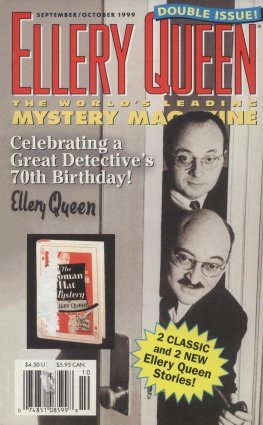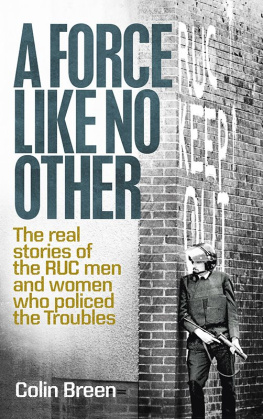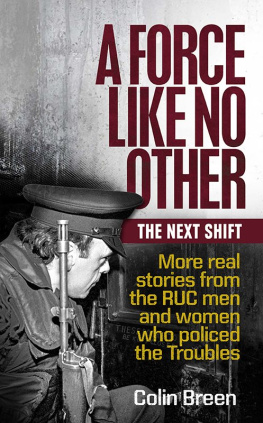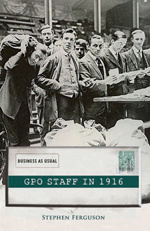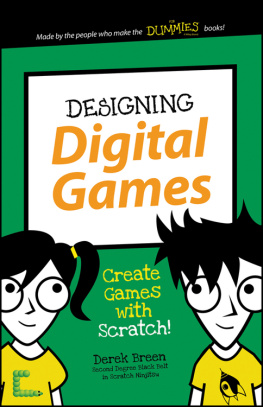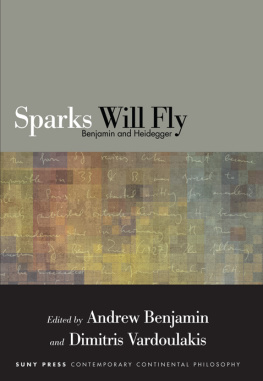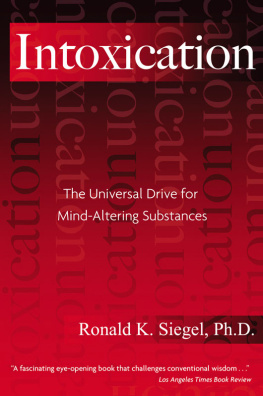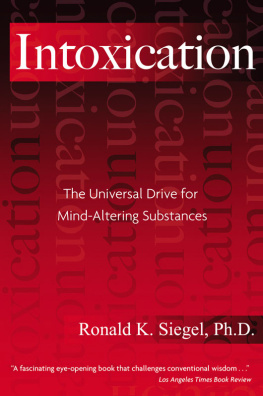Benjamin Breen - The Age of Intoxication
Here you can read online Benjamin Breen - The Age of Intoxication full text of the book (entire story) in english for free. Download pdf and epub, get meaning, cover and reviews about this ebook. year: 2019, publisher: Lightning Source Inc. (Tier 2), genre: Politics. Description of the work, (preface) as well as reviews are available. Best literature library LitArk.com created for fans of good reading and offers a wide selection of genres:
Romance novel
Science fiction
Adventure
Detective
Science
History
Home and family
Prose
Art
Politics
Computer
Non-fiction
Religion
Business
Children
Humor
Choose a favorite category and find really read worthwhile books. Enjoy immersion in the world of imagination, feel the emotions of the characters or learn something new for yourself, make an fascinating discovery.

- Book:The Age of Intoxication
- Author:
- Publisher:Lightning Source Inc. (Tier 2)
- Genre:
- Year:2019
- Rating:3 / 5
- Favourites:Add to favourites
- Your mark:
- 60
- 1
- 2
- 3
- 4
- 5
The Age of Intoxication: summary, description and annotation
We offer to read an annotation, description, summary or preface (depends on what the author of the book "The Age of Intoxication" wrote himself). If you haven't found the necessary information about the book — write in the comments, we will try to find it.
The Age of Intoxication — read online for free the complete book (whole text) full work
Below is the text of the book, divided by pages. System saving the place of the last page read, allows you to conveniently read the book "The Age of Intoxication" online for free, without having to search again every time where you left off. Put a bookmark, and you can go to the page where you finished reading at any time.
Font size:
Interval:
Bookmark:
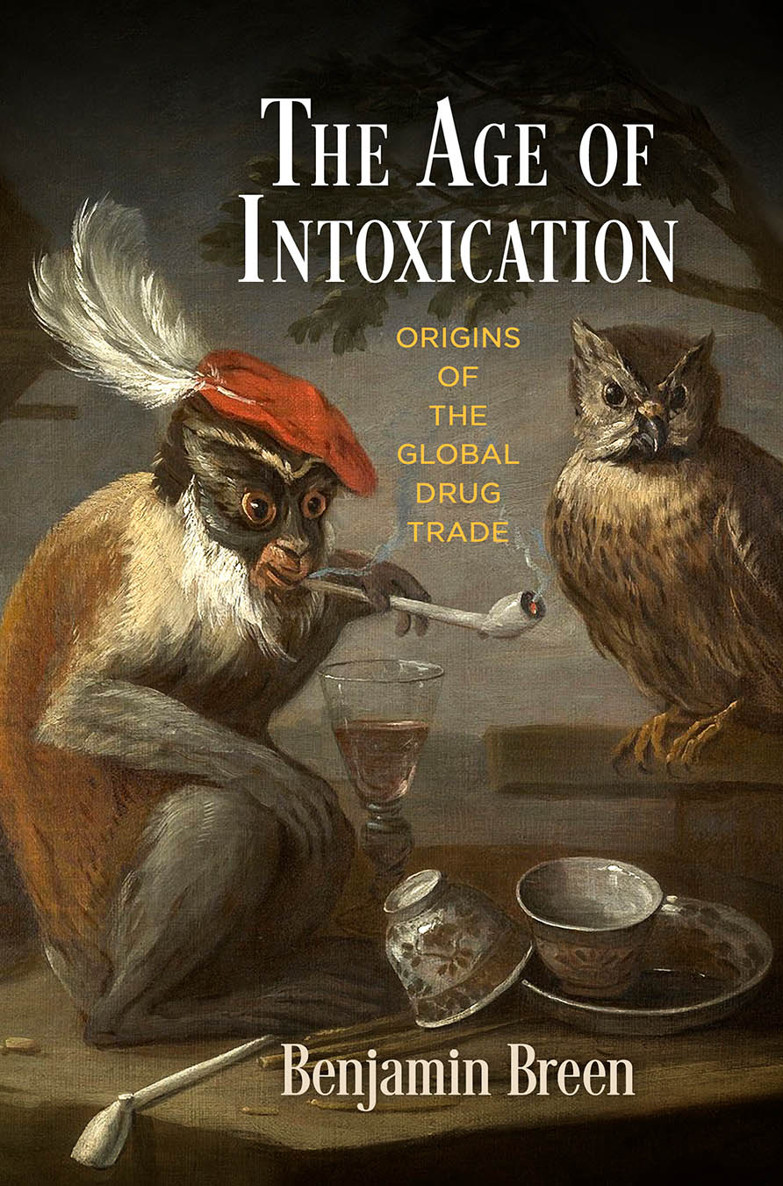
It is with a sense of profound gratitude that I write to thank the people who have made this book possible.
Jorge Caizares-Esguerras tremendous work ethic, determination, and creativity remains an inspiration. I have also been lucky to benefit from the mentorship of Julie Hardwick and James Sidbury. Christopher Heaney and Cameron Strang read the complete manuscript and provided comments on nearly every page, and Felipe Cruz provided a wellspring of ideas, conversation, and friendship.
Numerous friends and colleagues have generously offered feedback on earlier drafts or provided help with research: Allison Bigelow, Matthew Crawford, Harold Cook, David Courtwright, Paula Findlen, Carl Erik Fisher, Pablo Gmez, Paul Gootenberg, Joel Klein, Elaine Leong, Barbara Mundy, Abena Dove Osseo-Asare, Christopher Parsons, Neil Safier, Pamela Smith, James Sweet, Timothy Walker, and Phil Withington. I also thank friends in Austin and beyond who have served as valued sounding boards over the years: Daniel Gackle, Hadi Hossainy, Brian Jones, Katherine Noble, and John Travis Lindner.
In 2015 and 2016, Columbia Universitys Society of Fellows in the Humanities was an ideal home for writing much of this manuscript. Thank you to my fellow fellows for providing such a supportive and friendly environment: Maggie Cao, Will Derringer, Christopher Florio, Mara Gonzlez Pends, Brian Goldstone, David Gutkin, Heidi Hausse, Arden Hegele, Murad Idris, Nori Jacoby, Whitney Laemmli, Max Mishler, Dan-el Padilla Peralta, Carmel Raz, Rebecca Woods, and Grant Wythoff. Christopher Brown was helpful at every stage of my time at Columbia. Above all, I want to thank Eileen Gillooly for her tireless work in making the Heyman Center what it is.
Researching and writing this book involved extensive travel, and I have accrued many debts in the process. In Philadelphia, I owe thanks to Mairin Odle, Claire Gherini, Matt Goldmark, Ashley Cohen, Sean Trainor, Mitch Fraas, and the staff and community of the McNeil Center, especially to the inimitable Daniel Richter. At the John Carter Brown Library, I thank Margot Nishimura, Ken Ward, and my fellow Fiering House residents Ben Reed, Celine Carayon, Julia Gaffield, and Sophie Brockmann. At the Huntington, I greatly enjoyed peaceful walks around the gardens in the company of Matt Sargent, Ran Segev, and Claudia Tobin. And in London, I owe a special debt to Patrick, Adam, Bn, Waddah, Asya, Juan, Seda, Cosette, and all the other residents of Bishops House for inviting me into their home and making me feel welcome.
In Lisbon, thanks are due to Daniela Mak, Stephanie Almeida, and Jason Keith Fernandes. The Luso-American Development Foundation and the Arquivo Nacional da Torre do Tombo provided financial support and an office space early on in my time in Lisbon that helped me get settled. Thanks as well to the staff of the Portuguese Fulbright Commission; to the librarians and archivists of the Biblioteca Nacional de Portugal, the Torre do Tombo, and the Arquivo Histrico Ultramarino; and to Liam Brockey for an extremely well-timed tutorial in paleography. It was also in Lisbon that I met Timothy Walker, whose intellectual generosity and friendship came at just the right time.
The archival research for this book was made possible through the generosity of the J. B. Harley Fellowship in the History of Cartography; the Luso-American Development Foundation; the American Institute of the History of Pharmacy at the University of WisconsinMadison; the Fulbright Commission; the Consortium for History of Science, Technology and Medicine; the New York Academy of Medicine; the John Carter Brown Library; the Huntington Library; the McNeil Center at the University of Pennsylvania; the Fellows of Lincoln College, University of Oxford; and the Mellon Foundation. Thanks also go to the staff of the Harry Ransom Center at the University of Texas at Austin, the Beinecke Library at Yale University, and the John Carter Brown Library at Brown University in Providence, as well as to audiences who provided valuable feedback at the University of Pennsylvania, the University of Texas at Austin, the John Carter Brown Library, Columbia University, the New York City Latin American History Workshop, the New York University Atlantic Workshop, the Omohundro Institute at Yale University, and the University of California, Santa Cruz. To these institutions and to their staff who work to make historical research possible in a difficult period for the humanities, I express my sincere gratitude.
At the University of Pennsylvania Press, Bob Lockhart has been incredibly supportive and helpful over the past two years. I also wish to thank series editor Peter Mancall and Penns anonymous reviewers for their helpful and constructive comments on this manuscript.
UC Santa Cruz has been the ideal place to finish the work on this book. I am especially grateful to my neighbors in faculty housing for their warm welcome: Muriam Davis, Anna Friz, Amy Ginther, Alma Heckman, and Thomas Serres. Thanks also to my colleagues Alan Christy, Jennifer Derr, Kate Jones, Marc Matera, Matt OHara, Gregory OMalley, and Elaine Sullivan. I also want to acknowledge the contributions of Adriane Ackerman, Andrew Bailey, Sophia Gold, Charley Lanyon, Dustin Neuman, and Samuel Rosen.
I want to end by thanking the Breen and Pakzad families. In Iran, I was shown a level of hospitality that truly moved me, especially from my mother-in-law Eshrat, my sister-in-law Roja, and her husband Ehsan. My mother Gloria, my father John, my sister Heather, and my brother Nathan have taught me an important lesson in love and determination. I dedicate this book to my parents and brother in recognition of the profound sacrifices they have made and continue to make.
Finally, I want to thank Roya Pakzad. Your enthusiasm for life, your idealism, and your unique perspective inspire me every day, and your love and support has meant more than you know. The past four years have been the happiest of my life. To many more.
Academia das Cincias de Lisboa
Archivum Romanum Societatis Iesu (ARSI), Rome
Arquivo Histrico Ultramarino (AHU), Lisbon
Conselho Ultramarino: Angola, Bahia, Par, and Maranho
Arquivo Nacional da Torre do Tombo (ANTT), Lisbon
Inquisitions of Lisbon and Coimbra
Livro dos Feitos Findos (LFF)
Manuscritos do Brasil (MSBR)
Manuscritos da Livraria (MSLIV)
Registo Geral das Mercs (RGM)
Biblioteca da Ajuda, Lisbon
Biblioteca Nacional de Portugal (BNP), Lisbon, Manuscritos Reservados
British Library (BL), London
Sloane Manuscripts
Additional Manuscripts
New York Academy of Medicine
Royal Society Archives (RSA), London
University of Pennsylvania Rare Book and Manuscript Library
Wellcome Library, London
Abreu, Jos Rodrigues de. Historiologa Mdica, fundada, e estabelecida nos princpios de George Ernesto Stahl. Lisbon: Officina da Musica, 1733.
. Luz de Cirurgioens Embarcadissos. Lisbon, 1711.
Acosta, Christoval de. Tractado de las drogas y medicinas de las Indias orientales. Burgos: Martin de Victoria, 1578.
Acosta, Jos de. Historia natural y moral de las Indias. Madrid: Ediciones de Cultura Hispnica y Agencia Espaola de Cooperacin Internacional, 1998 [1590].
Acua, Cristbal de. Nuevo descubrimiento del gran rio de las Amazonas. Madrid: En la imprenta del Reyno, 1641.
Akyeampong, Emannuel Kwaku. Drink, Power, and Cultural Change: A Social History of Alcohol in Ghana, c. 1800 to Recent Times
Font size:
Interval:
Bookmark:
Similar books «The Age of Intoxication»
Look at similar books to The Age of Intoxication. We have selected literature similar in name and meaning in the hope of providing readers with more options to find new, interesting, not yet read works.
Discussion, reviews of the book The Age of Intoxication and just readers' own opinions. Leave your comments, write what you think about the work, its meaning or the main characters. Specify what exactly you liked and what you didn't like, and why you think so.

